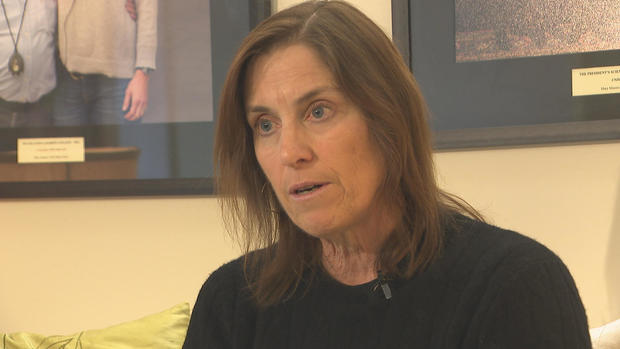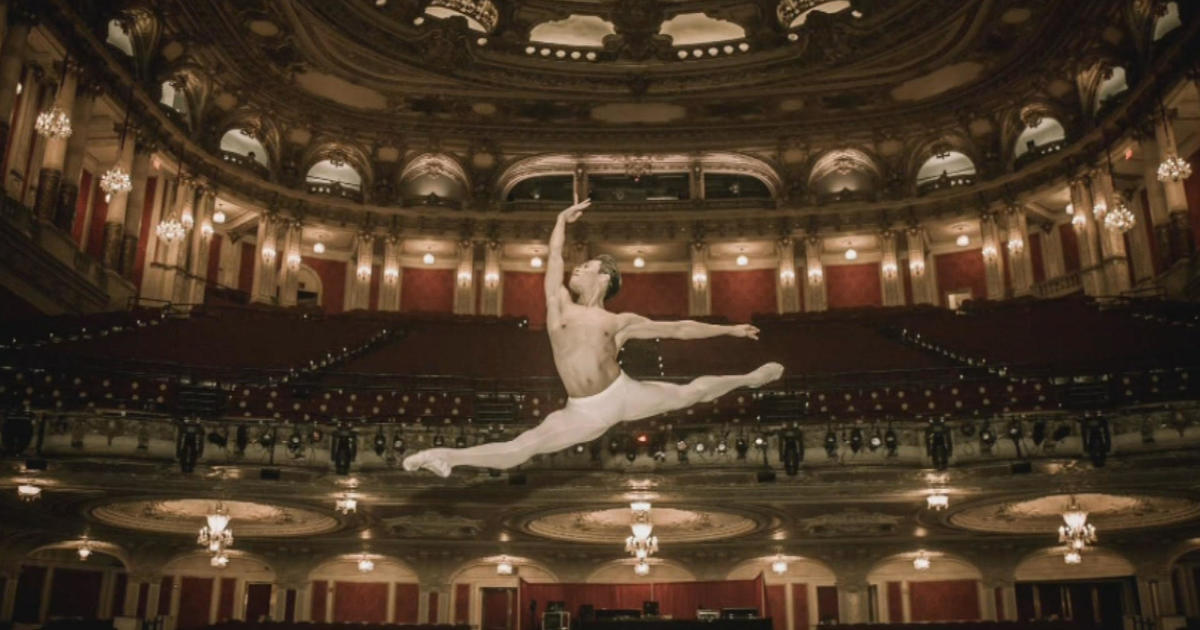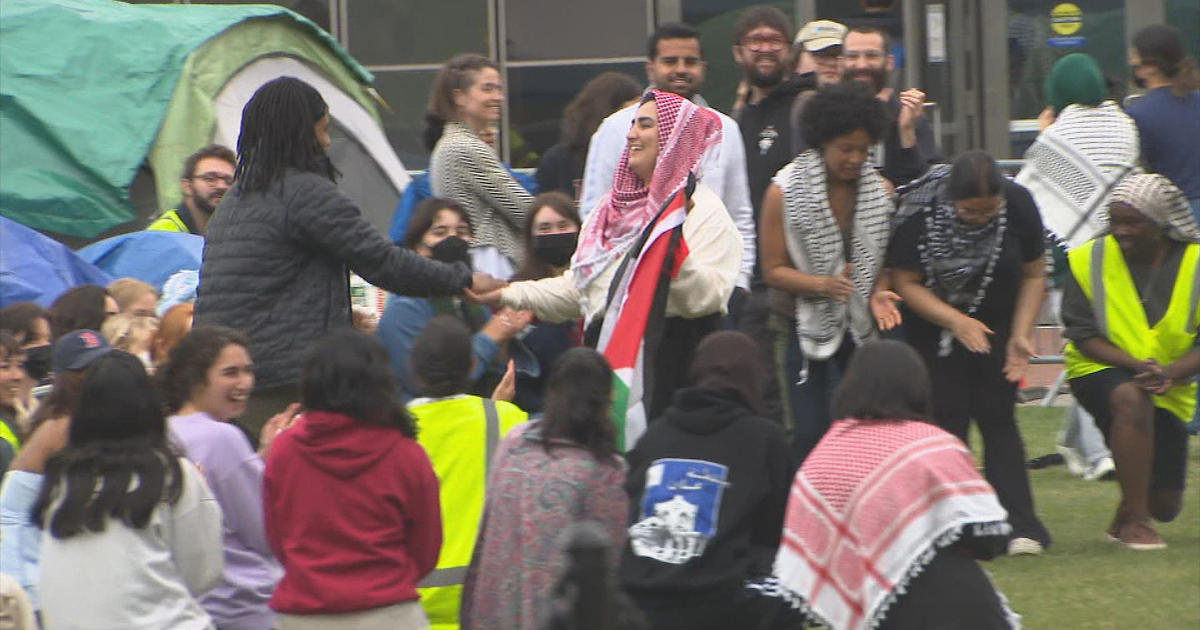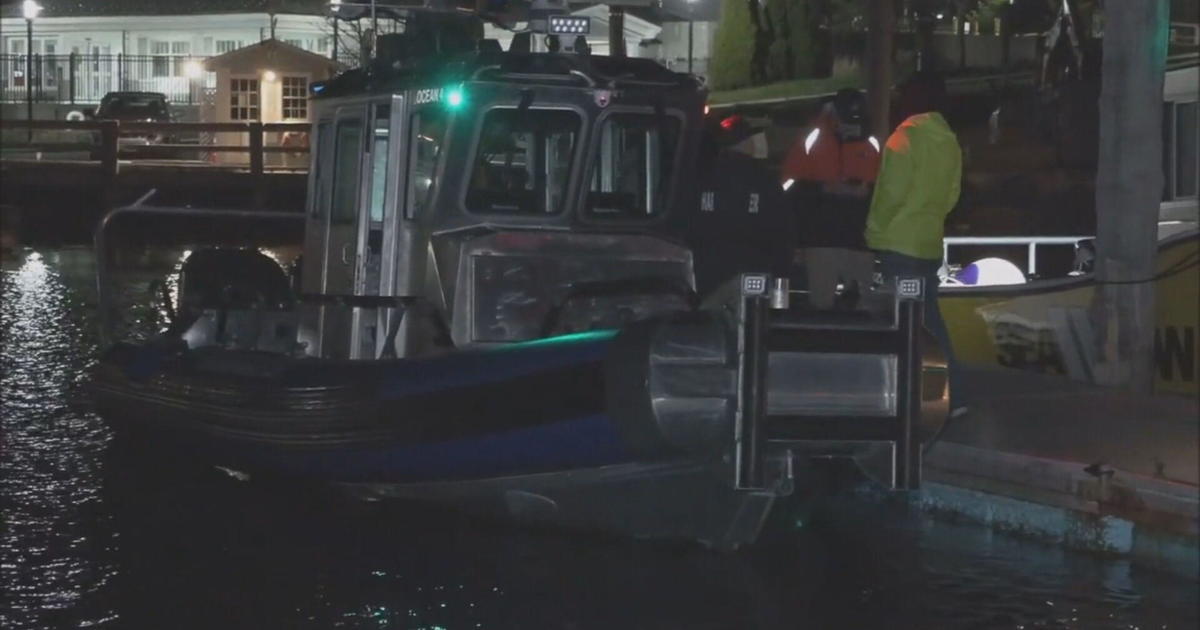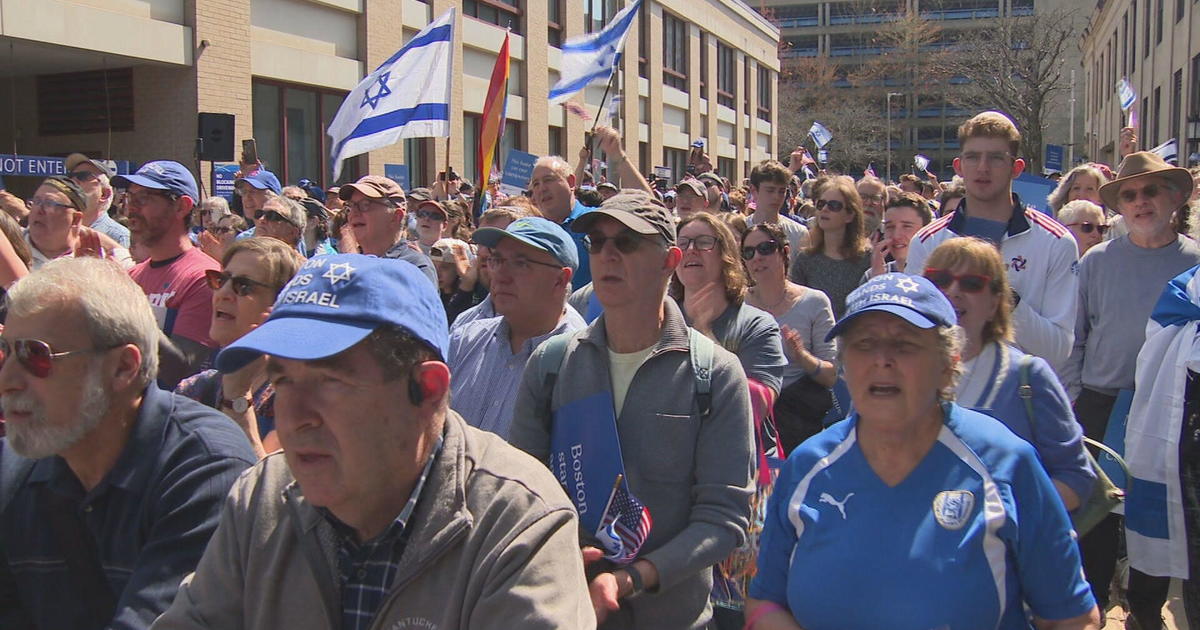Change Maker Mary Mazzio's new film "Bad River" highlights group "fighting the good fight"
BOSTON - Before filmmaker Mary Mazzio began shooting her latest documentary "Bad River" she traveled to the Bad River Band's tribal land in Northern Wisconsin. She had arranged to meet Mike Wiggins. At the time, Mike was the chairman of the Band, a group within the Ojibwe (Chippewa) tribe.
Mary knew what she was looking for. "An extraordinary native story," she explained at her 50Eggs Films office. "And one that could amplify the voices of the native community."
Mary met with tribal elders and began a series of conversations. The story she sought to share is the battle between the tribe and the Canadian energy giant Enbridge. The company's oil pipeline runs through a stretch of tribal land. The tribe is increasingly concerned that the line-known as Line 5-could rupture and cause a catastrophic spill in Lake Superior. "When you look at a 70-year-old pipe that was originally engineered to only be in the ground 50 years, there's going to be issues and problems," Mike told WBZ's Lisa Hughes over Zoom. "It's carrying a lot of oil and toxicity."
Recent flooding has eroded the land around the pipe. In places, tribal members say, the pipe is exposed and appears suspended. One member calls it "a ticking time bomb." Mike agrees. "That's threatening the heart of the Great Lakes... the freshwater stronghold of America."
An Enbridge spokesperson appears in the film and defends the company's position that the pipeline Line 5 is a critical source of propane and crude oil. The company argues that shutting it down would disrupt the energy market.
During Mary's first visit, Mike invited her to join him for a "morning exercise." She met him at 3:30 a.m. They drove to a beach where they separated... and waited. Mary describes feeling antsy and a little uncomfortable, wondering why they were there. "All of sudden," she says, "Daylight breaks and the sun begins to rise over Lake Superior. And it was the most beautiful, spectacular-you know-time-stands-still kind of thing. I saw it. And all of a sudden, it hit me. This is what's at stake! This is what I am at the center of this battle that the Bad River Band is now waging."
That the Band is fighting, not just for themselves, but to protect a resource for all Americans struck a powerful chord. "For me," she says, "it spoke to a sense of selflessness that's just a beautiful thing in an increasingly fractured world."
Elevating the underdog
Mary Mazzio's films elevate the underdog. She is drawn to David and Goliath stories. But rather than creating a polemic, her films aim to effect social change by focusing on what connects people. "It's far more effective... if you can create something where the left and the right can come together." She says the key is to focus on the human condition. "We're so much more alike than we are different. We live in this world where the fabric of our community is being torn apart. And I think we need more stories that focus on what so many of us share." All of her team's work, she says, is infused with that DNA.
The importance of teamwork is also in her DNA. Mary, who still rows, represented the U.S. Olympic Team in the 1992 Olympics in Barcelona. Her daughter Daisy Mazzio-Manson will row for Team USA in the 2024 Paris Olympic Games. Mary's first documentary "A Hero For Daisy" illustrated the challenges and inequities female college athletes faced-specifically the Yale women's rowing team in 1976-and the protest that led to change.
When Mary made the film, she wasn't a professional filmmaker. She was a young lawyer attending Boston University film school twice a week "on the sly." She still praises her legal assistant who covered for her. If someone called while Mary was in class, Diane simply explained that Mary was in a "really important meeting" and offered to take a message. When it was time to make a thesis film, Mary's husband encouraged her to make a "real film." She released "A Hero for Daisy" in 1999.
Since then, Mary's made 11 documentaries. "Underwater Dreams" (2014) helped raise $100 million for STEM programs for underserved students. (50Eggs Films now donates back half its film profits.) "I Am Jane Doe" (2017) catalyzed bi-partisan legislation to crack down on sex trafficking. "A Most Beautiful Thing" (2020) based on Arshay Cooper's memoir chronicles the first Black high school rowing team. NBA All-Star and Hall of Fame inductee Grant Hill co-produced "A Most Beautiful Thing" which was released shortly after the murder of George Floyd and, Mary says, took on even greater resonance as a result.
"Bad River" extended in several cities
Hill also co-produced "Bad River" which, upon release in March, was extended in several cities including Boston, a rarity for a documentary. Actors Leonardo di Caprio, Lilly Gladstone, Channing Tatum, and others have reposted the "Bad River" trailer on social media. "What we're hearing," Mary says, "is that young people are coming out-especially young native people-with a sense of pride."
She points out that it is a story many people don't know. "Most of us had no idea that in the 1950's, there was the federal government trying to push Native American citizens off their land and into urban areas. Mass relocation," Mazzio said.
That "Bad River" became more than the story Mary set out to tell is a testament to the trust she and her team built with the tribe. Instead of focusing solely on the legal battle, Bad River elders wanted to share their history and the battles to protect their land, children, culture and now, their water. Mike Wiggins says that a number of filmgoers-who are not in the tribe--have stopped him to admit that they had no idea what the Bad River Band has been through. "Mary Mazzio did a wonderful, unbelievable job putting forward our story," Mike said.
Mike, who has seen "Bad River" four times, has also noticed a change in tribal members since the film's release. "I've seen a lot of folks whose heart-mind connection has really solidified, especially having the context of our history laid out so clearly for them-especially young people," he said.
He hopes that "Bad River" will help audiences recognize, all the way to the Biden administration, the significance of a treaty reserved for water rights for an indigenous nation. He hopes that it will inspire new thinking about the importance of renewable energy and that the tribe's call to protect landscape and waters for future generations is embedded in their values. "Loving each other is possible. Taking care of each other is possible. Having more reverence for the places and the lands around us is possible."
Mary hopes that audiences will see the selflessness of a people who are "fighting the good fight" and who refuse to give up.
